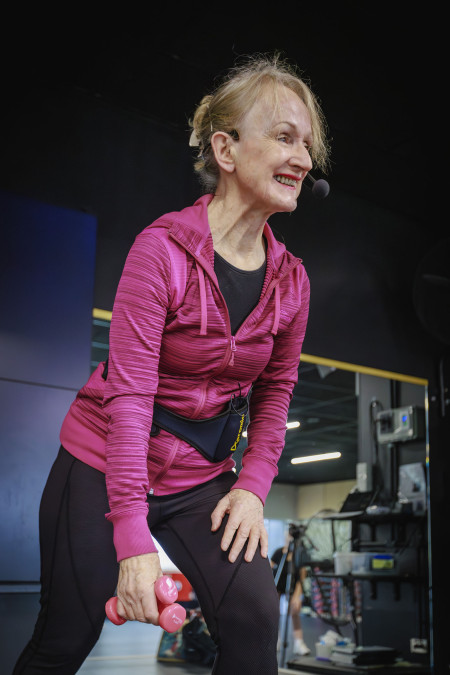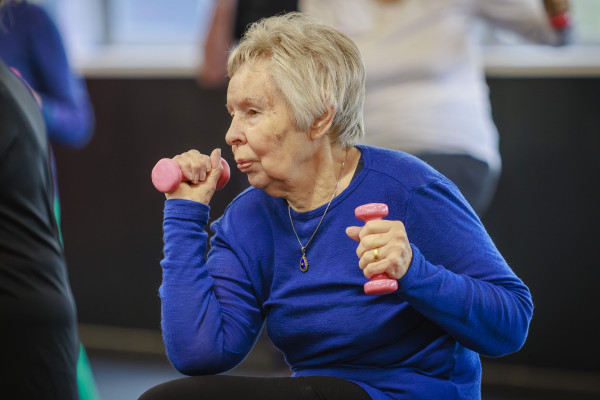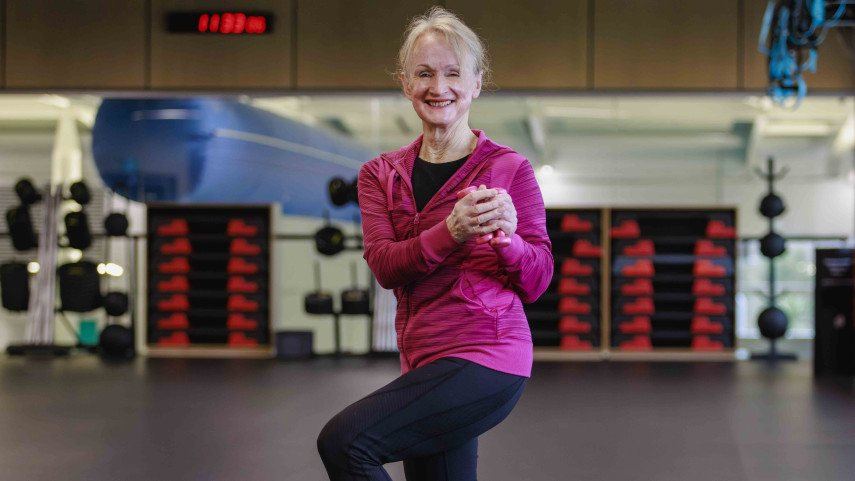Still going strong at 80
Share this story
Exercise is an antidote to aging - That’s the motto of Paula Barrett who at 80 years old teaches three fitness classes a week at Christchurch City Council’s Pioneer Sport and Recreation Centre.
And has done so since the late 1980s.
“I am surprised when people are surprised that I am still working at 80. I still feel the same inside though my body has obviously changed with age,” she said.

“I see exercise as an antidote to ageing.”
Paula’s life-long love of sport and exercise started back in the 1950s in South Ireland where she learned to swim in the local river and took up Irish dancing (a precursor to River Dance).
“In 1962 I went to Dublin for a course in physical education where I readily took to gymnastics, hockey, netball, lacrosse, cricket, rounders, tennis and swimming.”
After a stint teaching in Ireland and London, Paula and her young family headed to Iten, Kenya, where she taught in a school famous for long-distance runners before making the final move to Christchurch.
“In 1988 I came to New Zealand and my first job was at QEII taking a gentle exercise class. While I was there the manager from Pioneer rang looking for a basketball coach. I immediately put up my hand,” Paula said.
“Taking basketball expanded into preschool and after school gymnastics, tennis, squash, dancing, trampolining and gentle exercise.”
She hasn’t looked back since.
Paula said exercise is important at any age, but particularly when you’re older.
“It is never too early or too late to start looking after your mind and body. The benefits are innumerable,” she said.
“Keeping active strengthens muscles, eases back problems, improves balance, keeps joints supple, helps with bone health and prevents recurrence of common aches and pains.”
Her mantra was put to the test when being fit played a vital part in Paula’s recovery from breast cancer, which she was diagnosed with four years ago.
“While dropping off to sleep I felt an unusual sensation in my left breast. When I investigated why, I felt quite a large lump. A good lesson in regularly checking one's breasts for any changes,” she said.
“I was diagnosed with stage three cancer. I went through the various stages of treatment, mastectomy, chemo and radiation and was grateful to be fit enough to cope with the side effects. It never occurred to me to give up teaching.”
For Paula, it was a welcome relief to focusing on planning routines and suitable music rather than the next treatment.
“The Council was very accommodating in fitting in with my treatment dates. The regular class participants were supportive and emphatic, most had gone through similar challenges either themselves or a family member. To date I have been given the all clear,” she said.
“The social side of regular classes is important, especially as we age. Lifelong friendships are made, everyone is supportive and inclusive, not taking themselves too seriously.”


